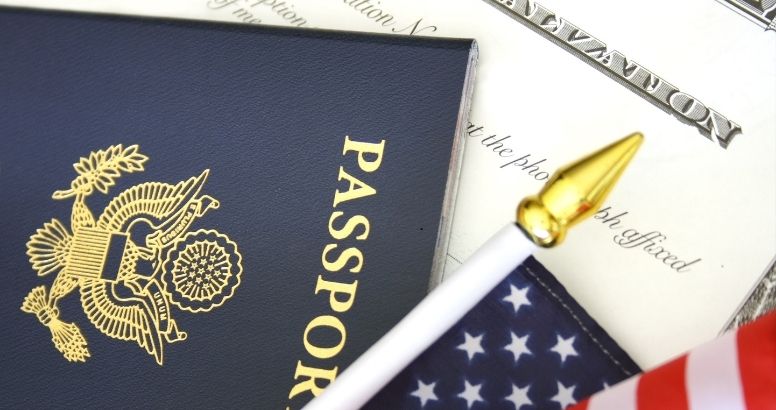What is an OCI Card?
The Overseas Citizenship of India (OCI) is a scheme launched by the Government of India in August 2005, providing foreign nationals of Indian origin the facility to live, work, and travel freely in India — without becoming Indian citizens.
As per the official notification:
“The OCI scheme allows registration as an Overseas Citizen of India for all Persons of Indian Origin (PIOs) who were citizens of India on or after 26 January 1950, or were eligible to become citizens on that date — except those who are or have ever been citizens of Pakistan, Bangladesh, or any country notified by the Indian government.”
✅ Benefits of an OCI Card
Holding an OCI card comes with multiple advantages:
- 🛂 Multiple entry, multipurpose, lifelong visa for visiting India.
- 🚫 Exemption from registration with FRRO (Foreign Regional Registration Office) for any length of stay in India.
- 🧾 Can be used as identity proof for:
- Applying for a PAN card
- Driving licence
- Opening a bank account (if residing in India)
- 📚 Educational, financial, and economic parity with NRIs (except for agriculture or plantation land acquisition).
- 🧑⚕️ Professionals (Doctors, Nurses, CAs, etc.) can pursue careers in India as per eligibility.
- ✈️ Domestic airfare costs similar to Indian residents (airlines may apply T&Cs).
- 🐅 Same entry fees as Indian nationals for national parks and wildlife sanctuaries.
- 🏦 Can open all resident-type bank accounts (subject to RBI and FEMA guidelines — consult your CA).
🔎 Section 7B of the Citizenship Act allows multiple admissions for various purposes without the need for repeated visa applications.
❓Is an OCI the Same as Indian Citizenship?
No. The Indian Constitution does not allow dual citizenship, so an OCI card does not confer Indian citizenship. However, it offers similar facilities to Non-Resident Indians (NRIs), except in:
- Voting rights
- Holding public office
- Acquiring agricultural land
- Government employment
📜 Changes Made by Government in 2021
As per the March 2021 notification:
OCI card holders must take prior permission from the Government of India for:
- Journalism
- Mountaineering
- Tabligh/missionary activities
- Internships/employment in foreign diplomatic missions in India
OCI holders are also required to inform FRRO:
- On change of residential address
- On change in occupation
👤 Who is Eligible for an OCI Card?
According to the Ministry of Home Affairs, the following foreign nationals are eligible:
A. Any person of full age and capacity:
- Who is a citizen of another country but was a citizen of India at or after 26 January 1950.
- Who was eligible to become a citizen of India on 26 January 1950.
- Who is a citizen of another country but belonged to a territory that became part of India after 15 August 1947.
- Who is a child, grandchild, or great-grandchild of such a citizen.
B. A minor child of a person mentioned above.
**C. A minor child with one or both parents being Indian citizens.
**D. A foreign spouse of an Indian citizen or OCI card holder, with a registered marriage subsisting for at least 2 years prior to applying.
❗ Not eligible: If the applicant or any of their parents, grandparents, or great-grandparents has ever been a citizen of Pakistan or Bangladesh, or any other country notified by the Government of India.
🧾 How to Apply for an OCI Card?
You can apply online at:
🔗 https://ociservices.gov.in
Documents required:
- Complete and signed application form
- Proof of current citizenship
- Documents proving Indian origin (for applicant/parents/grandparents/great-grandparents)
- Relationship proof (child, grandchild, spouse, etc.)
- Registered marriage certificate (for foreign spouses)
- Passport-size photographs
- Thumb impression and signature of the applicant
🚫 What OCI Card Holders Cannot Do
OCI holders do not have the following rights:
- ❌ Voting rights
- ❌ Membership of Legislative Assembly, Legislative Council, or Parliament
- ❌ Holding and Indian constitutional positions
- ❌ Ownership of agricultural or plantation properties
- ❌ Government jobs (normally not allowed)
- ❌ Undertaking missionary work, journalism, or mountaineering without prior permission
- ❌ Free movement in Protected/Restricted Areas without a valid permit (same as any foreigner)
⚠️ When Can an OCI Card Be Rejected or Revoked?
Under Section 7D of the Citizenship Act, 1955, the OCI card may be cancelled or revoked if:
- The registration was obtained by fraud, false representation, or concealment of material facts.
- The card holder is sentenced to imprisonment for 2 years or more within 5 years of OCI registration.
- The individual has communicated with an enemy country or acted against India’s national interest.
- The Government of India deems it necessary to revoke based on other violations or circumstances.
⚖️ For specific legal implications, consult a legal expert at NRI LEGAL WORLD or immigration consultant.
🧭 Conclusion
The OCI card is a powerful and flexible option for foreign nationals of Indian origin who wish to stay connected with their roots. It offers a wide range of rights and conveniences without giving up your foreign citizenship.
If you’re of Indian descent, the OCI card may be your passport to rediscover India culturally, professionally, and emotionally.
At NRI Legal World, we help simplify complex legal procedures for NRIs and PIOs. Whether it’s about OCI registration in India, property laws, or inheritance rights — our legal experts are here to guide you.


Comments are closed